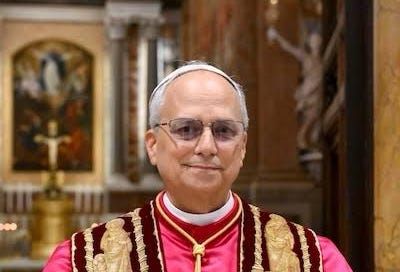Less than ten days into his papacy, Pope Leo XIV—known to his Chicagoan parishioners as Cardinal Robert Francis Prevost—has made a striking departure from the Vatican’s traditionally cautious tone.
Early signs suggest his papacy may be one of unprecedented moral clarity, especially when it comes to global crises like the war in Gaza.
In his first public remarks as pope, Leo XIV echoed his predecessor Pope Francis’s condemnation of war, reaffirming that “war is a defeat of humanity.” While he didn’t name specific governments, the tone was clear: the Vatican under his leadership is unlikely to remain silent in the face of atrocities.
Since October 2023, the war in Gaza has caused catastrophic humanitarian devastation. Entire neighbourhoods have been flattened, hospitals have been overwhelmed, and international agencies have warned of famine and disease. Journalists and humanitarian workers have been among the dead. Despite these conditions, the US and other Western allies have continued supplying Israel with weapons and shielding it from international accountability at the United Nations.
Pope Leo’s early messaging has signalled a shift. Though he has not yet directly named Israel or the US. Vatican observers interpret his references to “those who suffer under bombardment and siege” as a clear moral rebuke of ongoing violence—and of the enablers behind it.
“The Vatican has historically avoided direct confrontation with Western powers,” says a senior Catholic theologian familiar with Vatican diplomacy. “But Pope Leo XIV appears willing to confront the uncomfortable. He is reminding us that neutrality in the face of suffering is itself a moral stance.”
Inside diplomatic circles, that tone has not gone unnoticed. Reports suggest unease among US officials over the Vatican’s new posture, with some describing the pope’s rhetoric as “disruptive.” Meanwhile, Israeli officials have historically objected to external criticism, though no formal response to Leo XIV has yet been made.
What sets Leo XIV apart is his willingness to move from words to actions. While no formal diplomatic measures have yet been announced, sources in Rome say the Vatican is reviewing its diplomatic position in the region and considering ways to elevate the status of Palestinian Christians and push for renewed peace diplomacy.
Pope Leo’s background explains much of this urgency. As a missionary bishop in Peru and later as prefect of the Dicastery for Bishops, he earned a reputation for siding with the poor and challenging entrenched power. His worldview is pastoral, global, and justice-driven. His papacy now extends that vision to one of the world’s most intractable conflicts.
Across the Global South, Catholic leaders have warmly welcomed his tone. In Brazil and the Philippines, bishops have praised his “courage to speak for the voiceless.” In Latin America, many see Leo XIV’s arrival as a return to the Church’s liberationist roots—where the gospel is not abstract, but a tool for confronting oppression.
In the West, however, the response has been more cautious. The US Conference of Catholic Bishops has yet to comment on the pope’s messages concerning Gaza. Critics suggest fear of political backlash and institutional donors may be contributing to their silence.
In interfaith circles, Pope Leo is already making moves. Sources confirm preliminary outreach to Grand Imam Ahmed el-Tayeb of Al-Azhar, aimed at reviving Christian-Muslim dialogue focused not just on coexistence, but on justice. A papacy anchored in moral clarity and interfaith solidarity could reshape not just the Vatican’s role in the Middle East, but its influence in global diplomacy.
For Palestinians, particularly Christians in the Holy Land, this moment offers rare hope. While Western governments appear paralysed or complicit, the moral weight of the Catholic Church may provide a powerful new advocate.
There are those who accuse Pope Leo of politicising the Church. But this isn’t politics. It’s theology — incarnated in the suffering of the Palestinian people. When children die under rubble financed by so-called Christian nations, the Church must speak — and act.
Leo XIV may be new to the Chair of St. Peter, but in ten short days, he's reshaped the moral landscape. He's shown that the Vatican will not bless the machinery of death with silence. And in doing so, he may yet become the voice that saves Palestine from being erased — and the soul of a Church reclaiming its morality, humanity and mission.





Looking promising, GH. A US-born Spanish and Italian speaking pontiff - prepared to wage confrontation with the US and the Zionist theocracy of Israel. The US Bishops are no doubt (many of them - like what is currently happening to the ICJ/ICC) being threatened by Mossad - blackmailing them over their own "sins" is the most likely reading of their reticence and caution. Let them be brave nonetheless. Jim
Even if Palestine was NOT the birthplace of Christianity, a (new) spiritual leader must speak firmly against the present-day genocide of our times.
The will he / won’t he cautious predictions of politicians and bishops alike is another illustration of how low society has fallen.
May it be uplifted in service, humility, and justice.